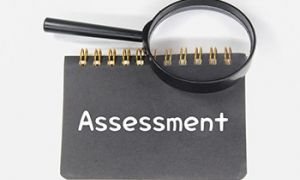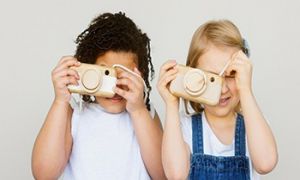

The National Quality Standard includes seven quality areas, in each quality area includes standards. These standards are high-level outcome statements. Under each standard are elements that describe the outcomes that contribute to the standard being achieved within the service. The following lists the documentation services that are required to have in order to support the achievement of each quality area from 1 to 7.
Providers of childcare care or early childhood educational services are required to get their service rated for quality by regulatory authorities. Quality ratings are provided after assessments against the seven quality areas outlined in the National Quality Standard or NQS. If your service has been rated ‘Working Towards’, here it what means and what you can do to improve your rating.
Critical reflection has been explained in the EYLF as reflective practices that focus on implications for equity and social justice. In the context of childcare, it involves examining and analysing events, experiences and practices from a range of perspectives to inform future planning and decision-making. The following article provides information on Engaging In Critical Reflections, Questions For Critical Reflections, Practicing Critical Reflections and more.
The Quality Support Program, Dual Program Pathways is a professional learning partnership between ACECQA and the NSW Department of Education as the NSW Regulatory Authority (RA) for children’s education and care services and providers.
The National Quality Area Reflection Questions Posters area is to be used as a guide for reflecting on each of the standards within each area. Use the information from these questions to recognize good practise or to change and improve what is not working well. It can also be used as part of a Self-Assessment or Quality Improvement Plan. These can be used as a display within the staff room or put into a folder to assist Educators in reflecting.
The Telethon Kids Institute has created the Play Active Program which contains a physical activity policy to assist services in putting their policy into practice.
National Quality Framework (NQF) presented the Annual Performance Report, 2021 on behalf of the Australian Children’s Education and Care Quality Authority (ACECQA). This report shows the impact of covid-19, on children’s health and safety, educational programs and practice, the effect on children from disadvantageous and vulnerable backgrounds, and how the workforce is working with intention of the well-being of children and with the public awareness of service quality.
According to the Educators’ Guide to the Early Years Learning Framework, documentation is the practice of recording and creating evidence of learning and the learning progress, helping make it visible. Though documentation is mandated to meet regulatory and pedagogical purposes, there are no prescriptive rules about how it may be done. The following article provides strategies for documenting in an early childhood setting.
Celebrations are among the most important binding factors in any community or society. In childhood services too, celebrations can be a great way to nurture a sense of being and belonging in children, when planned and implemented with sensitivity and reflection. Here are a few things to keep in mind when incorporating celebrations in early childhood services.
A key objective of the National Quality Framework is to promote continuous improvement in the provision of quality education and care services. Every service is required to be assessed and rated for quality by regulatory bodies and self-assessment is one of the most important steps in this entire process. Here is a bit more about the importance of self-assessment in the early care and education context.
 As an Educator in Australia, your pay rate falls under the Children’s Services Award 2010. This award states the minimum amount that an employer can… Read More
As an Educator in Australia, your pay rate falls under the Children’s Services Award 2010. This award states the minimum amount that an employer can… Read More
 When working as a qualified Early Childhood Teacher (with a university degree) within a service, your rate of pay will come from the Educational Services… Read More
When working as a qualified Early Childhood Teacher (with a university degree) within a service, your rate of pay will come from the Educational Services… Read More
 When working as a Diploma Qualified Educator your pay rate is from the Children's Services Award 2010. This Award states your minimum rate of pay… Read More
When working as a Diploma Qualified Educator your pay rate is from the Children's Services Award 2010. This Award states your minimum rate of pay… Read More
 When working as a Cert 3 Qualified Educator, your pay rate is from the Children's Services Award 2010. This Award states your minimum rate of… Read More
When working as a Cert 3 Qualified Educator, your pay rate is from the Children's Services Award 2010. This Award states your minimum rate of… Read More
 Educational Leaders play a crucial role in their early childhood service by ensuring that the educational program aligns with best practices and supports the holistic… Read More
Educational Leaders play a crucial role in their early childhood service by ensuring that the educational program aligns with best practices and supports the holistic… Read More
 In early childhood education and care, ratios are more than a technicality—they are a frontline safeguard. Every child deserves responsive supervision, emotional connection, and developmental… Read More
In early childhood education and care, ratios are more than a technicality—they are a frontline safeguard. Every child deserves responsive supervision, emotional connection, and developmental… Read More
 With the new national child safety reforms kicking in on 1 September 2025, early childhood services like yours have a real opportunity to lead the… Read More
With the new national child safety reforms kicking in on 1 September 2025, early childhood services like yours have a real opportunity to lead the… Read More
 Here’s a comprehensive Mobile Phone and Smart Watch Policy tailored for early childhood education and care (ECEC) services in Australia, aligned with the latest 2025… Read More
Here’s a comprehensive Mobile Phone and Smart Watch Policy tailored for early childhood education and care (ECEC) services in Australia, aligned with the latest 2025… Read More
 The Sea of Fish Challenge is a national initiative that invites children, educators, families, and communities to create and display fish artworks as a symbol… Read More
The Sea of Fish Challenge is a national initiative that invites children, educators, families, and communities to create and display fish artworks as a symbol… Read More
 Across the early childhood education and care sector, educators are sounding the alarm: current staffing ratios are insufficient to deliver safe, meaningful, and developmentally appropriate… Read More
Across the early childhood education and care sector, educators are sounding the alarm: current staffing ratios are insufficient to deliver safe, meaningful, and developmentally appropriate… Read More

The Planning Cycle in documenting for educators, as outlined in QA1 of the NQS, involves...
See more...
As services prepare for upcoming assessment and rating, educators and leaders often seek clarity on...
See more...
MTOP (My Time, Our Place) Outcome 1 focuses on children having a strong sense of...
See more...© 2009-2025 Aussie Childcare Network Pty Ltd. All Rights Reserved.

